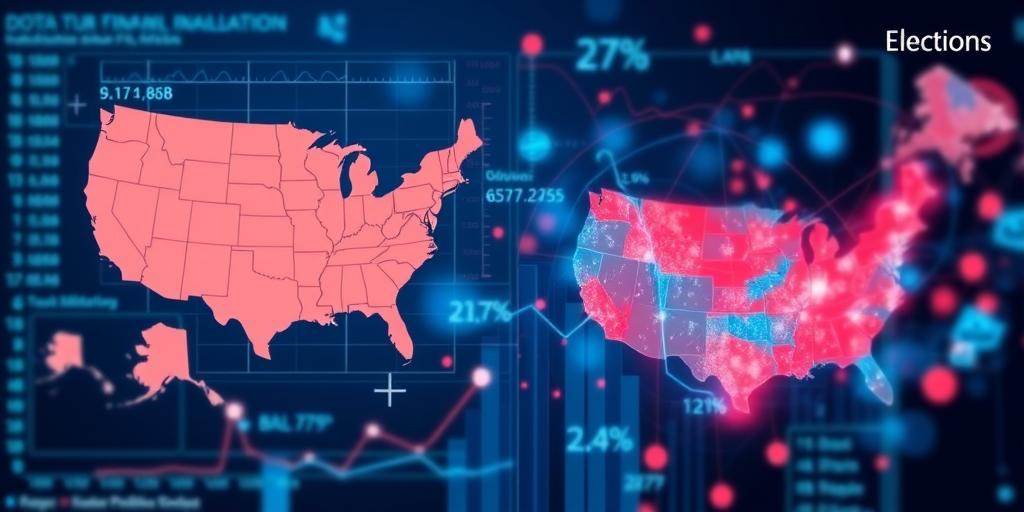The Role of Data Analytics in Elections
In today's political landscape, data analytics plays a pivotal role in shaping election outcomes. By leveraging data-driven insights, campaigns can refine their strategies, target specific demographics, and optimize resource allocation. Let's delve into how data analytics is transforming the election process.
Understanding Voter Behavior
Data analytics enables campaigns to gain a deeper understanding of voter behavior. Through analyzing demographic data, voting history, and social media activity, campaigns can identify key trends and patterns. This information helps them tailor their messaging to resonate with specific voter segments, increasing the likelihood of garnering support.
Targeted Advertising and Messaging
One of the most significant applications of data analytics in elections is targeted advertising and messaging. By segmenting voters based on their interests, concerns, and political affiliations, campaigns can deliver personalized messages that address their specific needs. This approach is far more effective than traditional, broad-based advertising, as it ensures that each voter receives information that is relevant and compelling.
Resource Allocation and Campaign Optimization
Data analytics also plays a crucial role in optimizing resource allocation for campaigns. By analyzing voter turnout rates, demographic data, and polling results, campaigns can identify key areas to focus their efforts. This ensures that resources are directed towards activities and regions where they will have the greatest impact, maximizing the efficiency of the campaign.
Sentiment Analysis and Public Opinion Monitoring
Sentiment analysis, a branch of data analytics, allows campaigns to monitor public opinion in real-time. By analyzing social media posts, news articles, and online forums, campaigns can gauge the public's perception of their candidate and identify potential areas of concern. This enables them to proactively address negative sentiment and adjust their messaging accordingly.
Case Studies: Successful Data-Driven Campaigns
Numerous case studies highlight the effectiveness of data analytics in elections. For example, the Obama campaign in 2008 and 2012 utilized data analytics to identify and mobilize supporters, resulting in a significant advantage over their opponents. Similarly, the Brexit campaign in the UK leveraged data-driven insights to target voters with personalized messages, ultimately leading to a successful outcome.
Ethical Considerations and Challenges
While data analytics offers significant advantages in elections, it also raises ethical considerations and challenges. Concerns about privacy, data security, and manipulation of voters must be addressed to ensure fair and transparent elections. It is crucial for campaigns to adhere to ethical guidelines and regulations when using data analytics to avoid potential abuses.
The Future of Data Analytics in Elections
As technology continues to evolve, the role of data analytics in elections will only grow more significant. Emerging technologies like artificial intelligence and machine learning will further enhance the ability of campaigns to analyze data, predict voter behavior, and optimize their strategies. However, it is essential to balance the benefits of these technologies with the need for ethical and responsible data practices.
In conclusion, data analytics has become an indispensable tool for modern election campaigns. By understanding voter behavior, targeting advertising, optimizing resource allocation, and monitoring public opinion, campaigns can significantly improve their chances of success. However, it is crucial to address the ethical considerations and challenges associated with data analytics to ensure fair and transparent elections.









